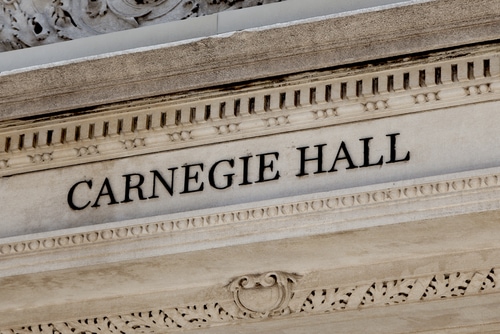Scott Cooper Miami on Carnegie’s Inequality Doctrine
Andrew Carnegie in his essay “The Gospel of Wealth,” described massive inequality “as the unavoidable consequence of a free-market system”. But the “Carnegie Inequality Doctrine” was quite wrong about inequality becoming “unavoidable.” In heeding his treatise, the economy was working just fine and that philanthropists had to give charity to those at the base progressives must move. Carnegie provided an implicit justification for a history of abuse, while ignoring the fact that inequality in America the inequality between racial groups–is a direct result of decisions.
The violent and violent seizure of this land from its native inhabitants, the creation and enforcement of chattel slavery to create wealth for a few, the abandonment of Reconstruction-era reforms designed to compensate the victims of slavery, the deliberate exclusion of agricultural and domestic workers from the Social Security Act, the practice of restricting access into the billions of dollars’ worth of benefits provided by the GI Bill and national home-loan guarantees of the mid-20th century, along with the legal tolerance of racial discrimination in private-sector hiring and employment before the passage of the Civil Rights Act in 1964–each of these were official policies and activities of the US authorities. The inequality that is plaguing America today was created by these policies and supported by the Carnegie Inequality Doctrine.
There Is A Better Way
Thus, the way is by altering public policy. With a leverage perspective money can be transferred by changing policies than by creating grants. [ Florida Carnegie Medal ]
Consider one policy change that may end poverty in America: executing a wealth tax on the wealthiest 1 percent of Americans. The collective assets of the top 1 percent–those whose net worth exceeds $18 million–is $23 billion. Requiring this cohort of the populace would generate roughly $500 billion each year–six times the net worth of billionaire philanthropist Bill Gates. Given that the average stock-market yield since 1928 has been 11 percent, a 2 percent tax shouldn’t reduce anyone’s net worth; we’d merely be asking them to get even richer a little more slowly. This concept probably would not have appealed to the Carnegie Inequality Doctrine.
How To Reverse The Carnegie Inequality Doctrine
A policy revolution can progress, says Scott Cooper Miami. Furthermore, by giving their prestige and credibility to the idea first, public opinion can be influenced by them. If a tax was endorsed by the nation’s wealthiest people on their peers and their own, it would create political will.
Secondly, philanthropists can encourage their grantees to take full advantage of their existing tax-code provisions. This allows 501 (c) (3) organizations to engage in limited lobbying. America’s nonprofits spend more than $300 billion per year, into improving public coverage, and billions can move. On the medium term, philanthropists should pursue removing all restrictions on lobbying by nonprofits. Why can’t charities communicate with their elected representatives in the first place?
That it reflects the demographics of the nation. The next step that philanthropists will take would be to support efforts to alter the makeup of their population. The electorate is considerably whiter than the people as a whole. This stems from immigration policy in addition to obstacles to electoral involvement. Automatic voter registration and reforms such as online can eliminate hurdles. One of the barriers to becoming naturalized is the cost of this $680 program fee. A philanthropic fund of $10 million per year might help bring millions of people of colour.
Andrew Carnegie made a substantial contribution in his day by hard his contemporaries to become philanthropic. Rather than hoarding their money to spend on consumption. Today’s philanthropists abolish the inequality that they’ve caused and maintained over the past 400 years and can bring that Carnegie never dreamed of by focusing their time, talent, and resources on emending our nation’s public policies.


